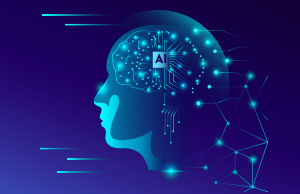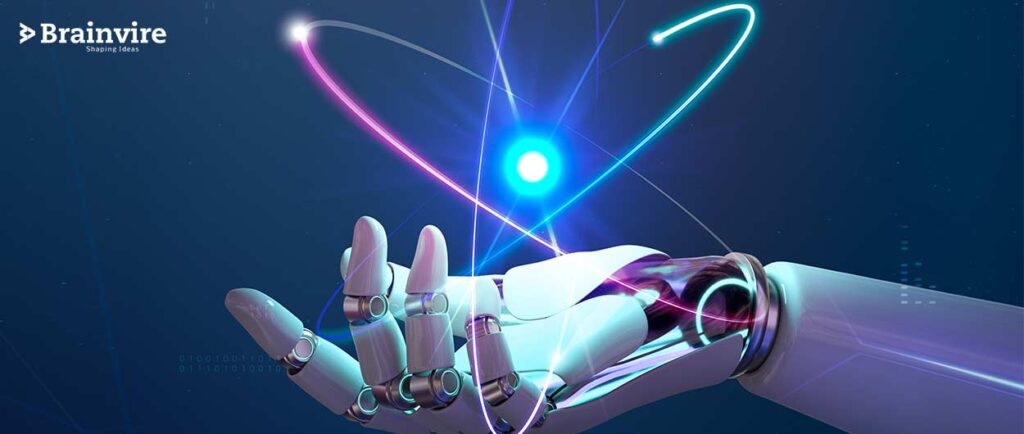
Technological advances and the internet of things (IoT) have led to a shift in consumer behavior, enabling them to conduct business through online platforms and marketplaces. This is likely to evolve into a $400 billion industry by 2020.
Artificial intelligence (AI), which has been widely used as the basis for voice recognition software and has recently been employed by companies that monitor customer activity on their websites, is a key driver of the digital economy.
There are few obstacles to AI reaching its full potential, as illustrated by Google’s release of a self-driving car prototype in September 2015. The benefits of AI’s widespread adoption have been so significant that some countries have declared a national strategy to promote AI development.
With its ability to cope with an increasingly complex and fast-moving world, AI is predicted to substantially impact several industries that directly or indirectly employ millions of workers across the globe.
Impact of AI on different industries:
1. Banking And Finance
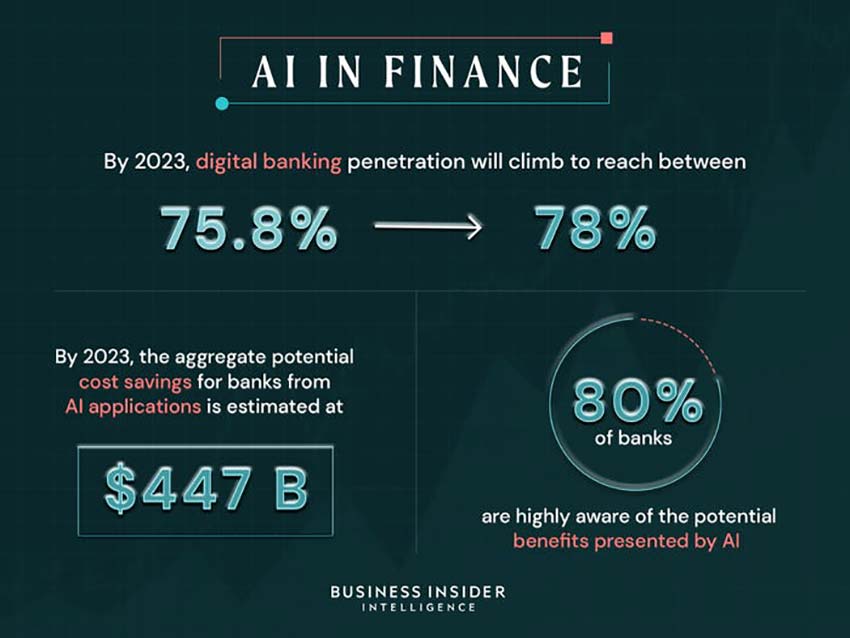
The banking and finance industry is one of the sectors that will likely undergo the most significant transformation due to AI.
Among the different areas expected to be affected by AI, the CEO and research director of Gartner predicted that within five years, we should see the first mainstream applications of commercial use cases for intelligent assistants and chatbots, which would pave the way for other AI-driven technologies like machine learning and conversational platforms.
AI is set to:
- Disrupt the traditional role of bankers and financial analysts through automated financial advisors that can provide customers with personalized advice on investments, mortgages, credit cards, etc.
- Collect data from numerous sources to predict market movements; offer risk-management solutions for companies; and assist in predicting fiscal policies, etc.
- Offer banking services at lower costs through the automation of processes that are done manually today. According to Gartner, the use of robotic process automation could save banks $1 billion a year by 2022.
This will result in unprecedented access to financial services for millions of people who do not access traditional banking services today. This could be especially beneficial for the unbanked, who do not have a large store of savings and are often charged high fees for transferring money to relatives or friends living in other countries;
- Change or eliminate some jobs through chatbots that interact with customers about their finances, automated teller machines, automated financial advisors, etc.
2. Insurance
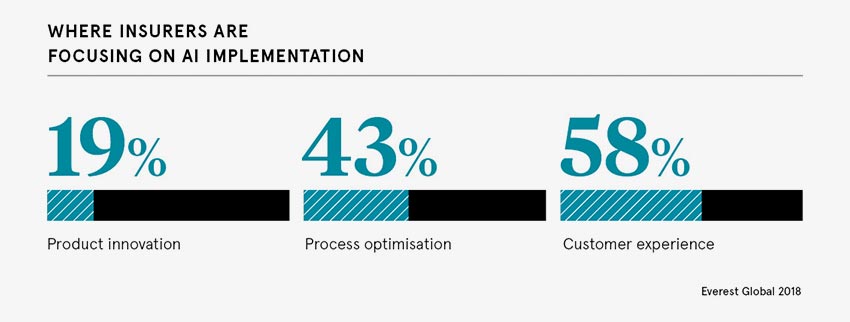
The insurance industry is also expected to undergo some radical changes due to the increased use of AI. For example, some companies use robotic process automation to handle claims processing for property and casualty insurance. In addition, insurers and brokers can use smart contracts to provide clients with access to their health data and obtain real-time risk assessments based on this data.
Thanks to AI, insurance companies will be able to:
- Offer new products such as usage-based policies that provide discounts for drivers who use their cars less than others
- Collect and analyze vast amounts of customer data in real-time to improve risk assessment
- Use robotic process automation for claims processing. These robots will be able to complete the entire life cycle of a claim, from customer interaction to contract creation
- Provide automated insurance services through chatbots that will help customers purchase insurance policies and make it possible for companies to work with their clients in real-time
3. Healthcare
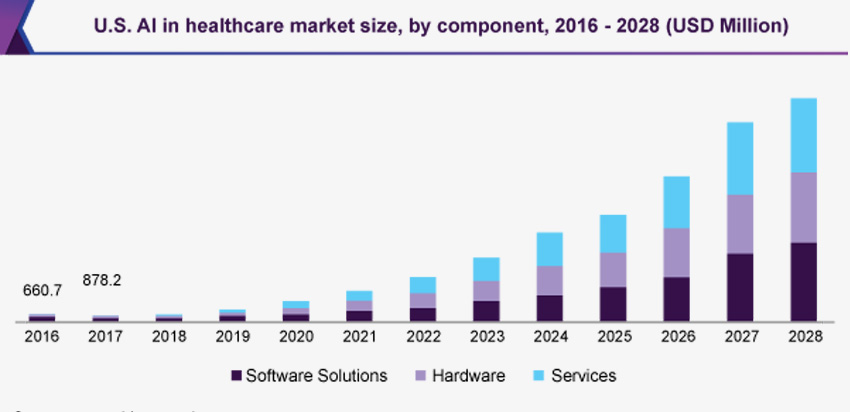
Healthcare is the industry that stands to gain the most from AI technologies, especially when it comes to diagnostics and treatment plans. For example, AI can enable researchers to process clinical data 16 times faster than through manual transcription services, so they can discover patterns and associations between diseases more quickly, which will help them discover new ways to cure diseases.
AI can also be used in medical imaging, helping physicians make faster and more accurate diagnoses by providing key information about their patients. It can even bring down the cost of healthcare services through robots that help nurses deliver medicine to patients or provide administrative support at hospitals.
- Help physicians and nurses by providing real-time analysis of patient data
- Automate administrative activities such as answering phone calls, scheduling appointments, etc.
- Scour clinical, genetic, and imaging data to predict life-threatening diseases before they happen. For example, AI can determine cancers that are likely to return and tumors that may be resistant to treatment
- Make accurate diagnoses by training AI algorithms and chatbots with medical reports and essential information about patients. These programs can complete the entire diagnostic process, from analyzing symptoms to providing physicians with the most likely cause of illness after gathering all relevant information
- Assist doctors and nurses by performing administrative tasks such as answering phone calls, scheduling appointments, and completing other work that does not require a medical degree
4. Public Sector
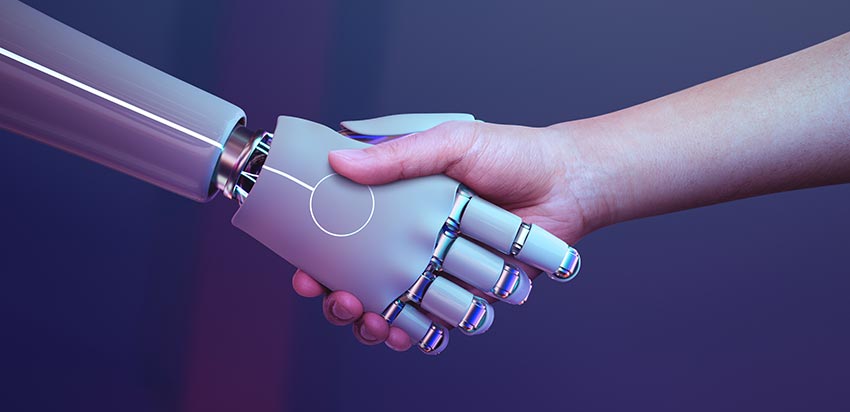
AI technologies allow governments to develop new ways of providing services to citizens, analyze vast amounts of data about the population, and conduct predictive modeling for planning purposes. For example, AI can be used to predict the likelihood of someone falling victim to crime, whether they will become homeless or unemployed, and which areas are most at risk. Governments can then use this data for poverty alleviation purposes.
AI also enables citizens to make more accurate decisions about their future because it can analyze all available job opportunities in different locations based on geographical factors (such as crime rates, income levels, etc.), so people can find the job that best suits their needs.
- Improve predictive modeling by analyzing data about the population (such as health conditions, education levels, job opportunities) to determine who is most likely to need government assistance
- Plan poverty alleviation programs based on this data
- Conduct predictive modeling to determine the areas most at risk for natural disasters to identify people who are likely to fall victim to crime and other types of emergencies. Governments can then use this information to take preventative measures or provide aid if a disaster occurs
- Provide services through chatbots that help citizens access government services, answer questions about government programs, and more
5. Retail
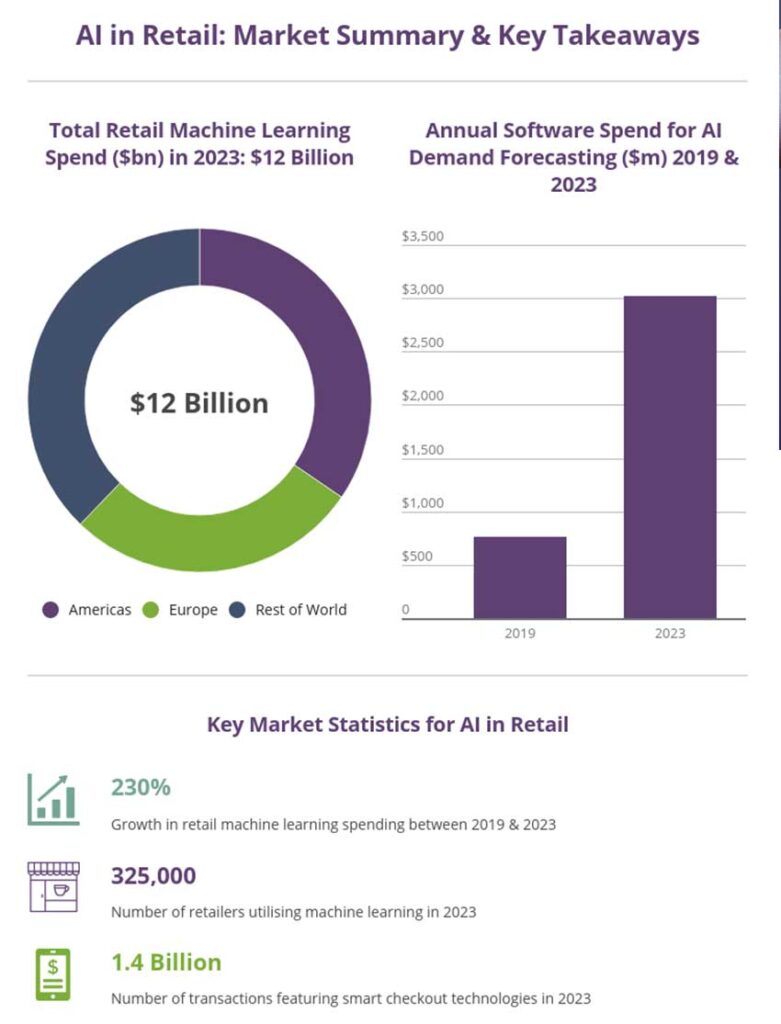
Retail is one of the most competitive industries in which AI technologies are being used to provide better customer service through agents that can recognize client needs with minimal input.
For example, chatbots powered by machine learning algorithms have been developed to analyze customers’ online chat sessions.
As a result, the chatbots can determine customer sentiment, identify complaints in chat sessions and provide follow-up questions for further clarification.
This technology can dramatically enhance the shopping experience by assisting 24 hours a day, seven days a week, when customers need it most.
- Allow retailers to improve their customer service by using chatbots to automate online chat sessions with customers
- Analyze customers’ sentiment in chat sessions and identify complaints
- Provide follow-up questions for further clarification
6. Automotive/Manufacturing
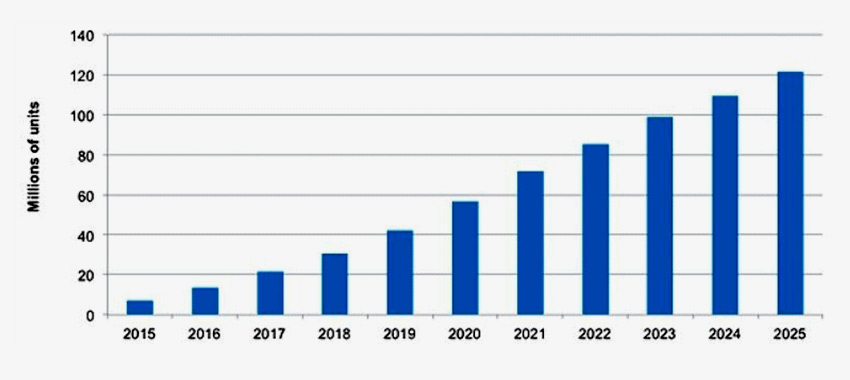
AI is being used in the automotive industry to help create safer, more energy-efficient vehicles that can learn from their surroundings. For example, AI is used in self-driving cars to recognize potential hazards, make real-time driving decisions, and drive autonomously.
The technology can also be used in manufacturing industries to improve safety procedures by analyzing machinery data (such as temperature levels) to determine when maintenance should be performed.
- Apply AI to manufacturing processes to improve safety and make real-time decisions about manufacturing equipment
- Assist drivers in self-driving cars by making real-time driving decisions and allowing them to drive autonomously
7. Energy Management
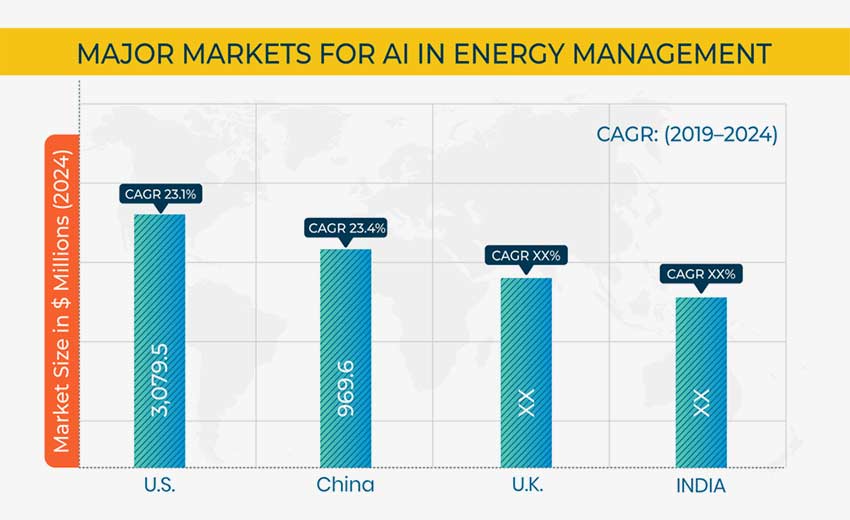
AI is being used for energy management purposes to monitor energy consumption, analyze past data from machinery and predict future energy needs. For example, AI can be used to generate automatic reports that monitor the daily performance of machinery and provide relevant information to technicians about necessary maintenance or repairs.
As a result, this technology can reduce costs by more accurately identifying energy usage patterns and maximizing equipment efficiency.
- Reduce costs by predicting future energy needs based on usage patterns
- Analyze machinery data to determine when maintenance should be performed
8. Military/Defense
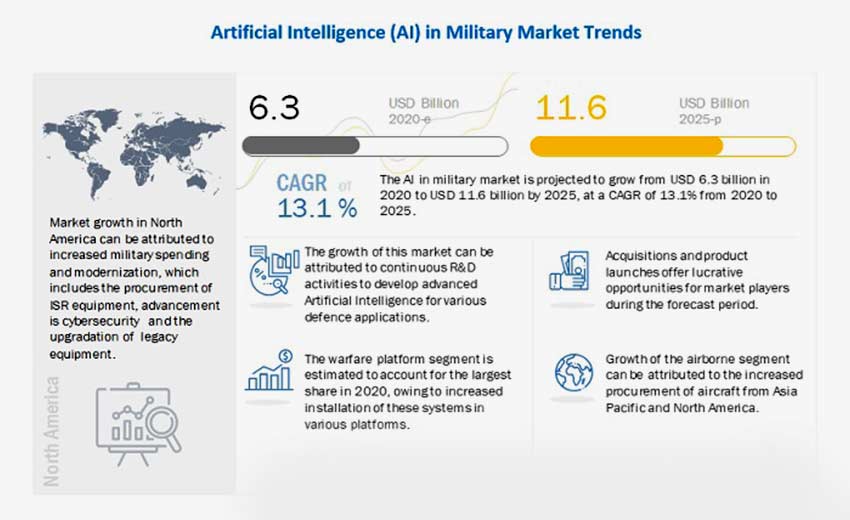
Militaries worldwide are using artificial intelligence for various purposes, including implementing autonomous weapons systems that can think, act and learn on their own. For example, this technology is being used to develop new weapons systems with greater capabilities than current conventional weaponry.
Additionally, the technology can be used for defense purposes, such as analyzing large data sets and identifying patterns or anomalies that may indicate a threat.
- Use AI to implement new types of weapon systems that operate autonomously
- Identify threats based on data analysis
- Respond to threats with autonomous weaponry
9. Education
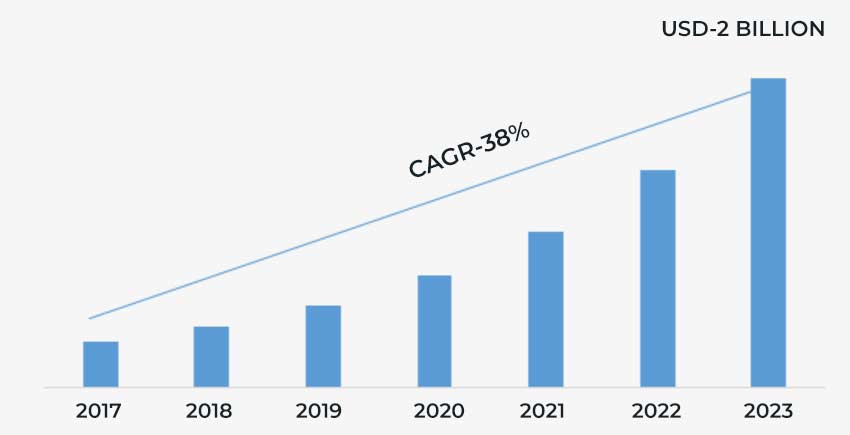
Although AI has faced some controversy over its potential impact on human jobs, many experts believe that AI can hold great promise for education. For example, AI is used in language learning applications to help students learn a second language by providing personalized language lessons and speaking to students in their native language.
One such application is a virtual assistant called “Pepper” that assists with language learning at the International Christian University in Tokyo, Japan.
Although it can be difficult to measure the exact impact of AI on education, many educators believe it can improve pedagogy by providing more engaging educational experiences for students through the use of technology tools.
- Use AI to provide personalized language lessons
- Create engaging educational experiences for students that utilize technology tools
- Develop virtual assistants, such as “Pepper,” that assist with education at International Christian University in Tokyo, Japan
Conclusion
The AI industry is exploding, and that does not appear to be slowing down. In fact. Everything will use AI to improve the efficiency and flow of operations. Using AI, one will be able to access information faster and make judgments more swiftly, resulting in increased productivity. Only the leading Artificial Intelligence Company can assist you in developing business operations that you never envisioned.
Related Articles
-
How Microsoft Office 365 Can Give A Leg Up To The Enterprises?
Not so long back, in 2010, Microsoft announced the private beta release of the Office 365 and in 2011, it becomes available for all the industry verticals. The Office 365
-
Matt Cutts on – Starting to test Google Domains
Google always surprise us by their search effect’s usually, But here is Google new and most exciting Step as a “Domain Provider”. We got a Notification from Matt cutts Google
-
Landing Page: What Is It & How It Impacts Businesses?
Digital marketing is one of the ways businesses use to generate leads. Therefore, it has become increasingly important for websites to have effective landing pages because that is where visitors
